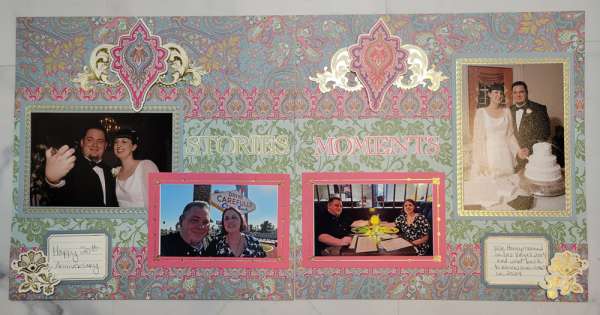How these 4 cruisers got banned by cruise lines for life — and how to avoid their fate
It might surprise you to know that cruise lines routinely ban problematic customers — even without notification. Sometimes, these bewildered would-be cruisers only learn about their unwelcome status while attempting to book a new trip. For the four former cruise passengers you’re about to read about, landing on the “Do Not Sail” list came as …

It might surprise you to know that cruise lines routinely ban problematic customers — even without notification. Sometimes, these bewildered would-be cruisers only learn about their unwelcome status while attempting to book a new trip.
For the four former cruise passengers you’re about to read about, landing on the “Do Not Sail” list came as a complete surprise. In fact, most of them never imagined that getting banned from a cruise line permanently was even a possibility.
Here’s what TPG wants you to know about steering clear of a cruise line’s blacklist because, unfortunately, once you’re on it, there’s usually no way off.
Surprise! Children can get you permanently banned from cruising
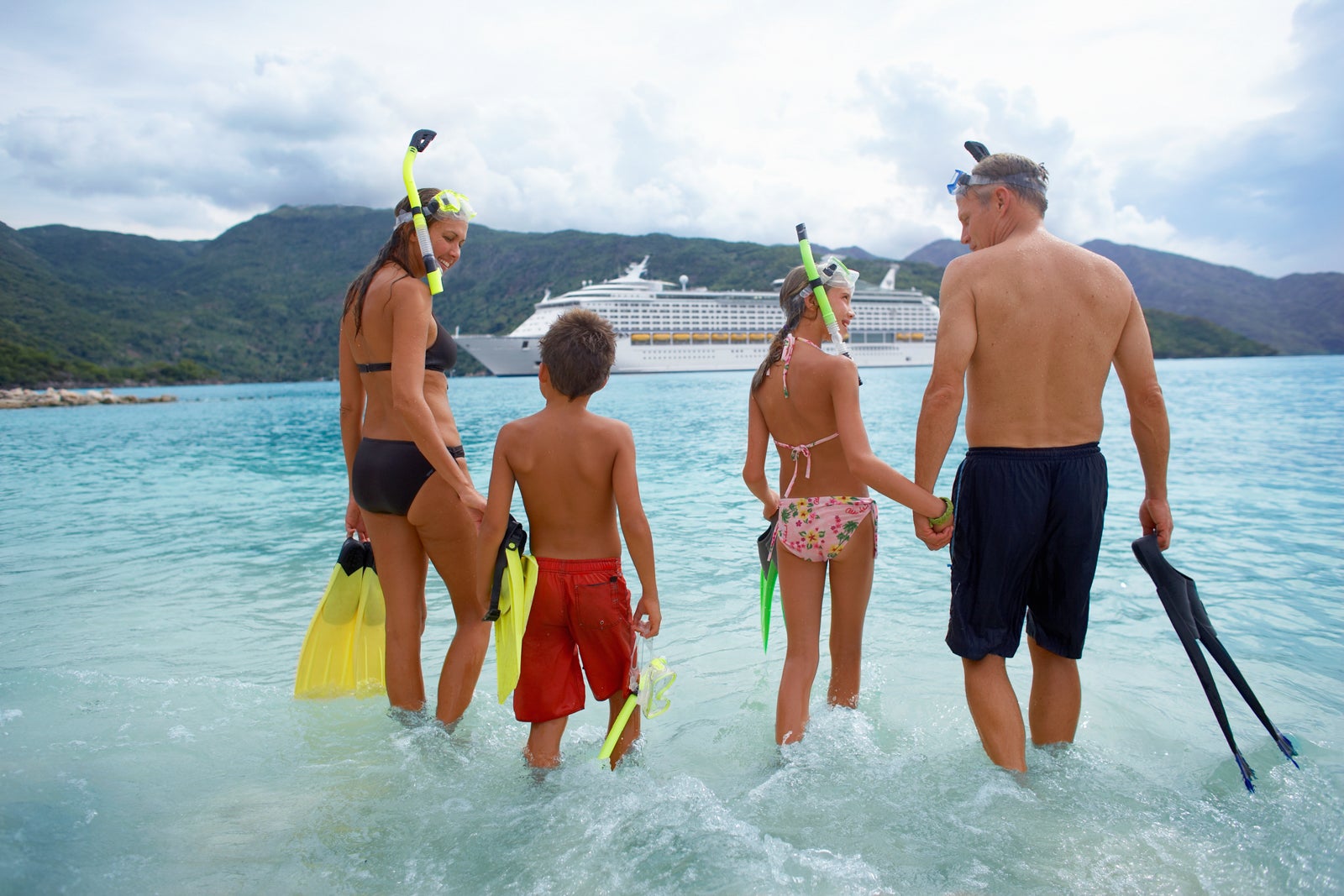
Sometimes getting banned from a cruise line comes in a circuitous way.
Last summer, Linda S. found out her entire family would no longer be able to travel on their preferred cruise line when Carnival Cruise Line banned the youngest member of their brood forever. This punishment came about after her 9-year-old son left their cabin to explore Carnival Celebration unsupervised on the first night of their most recent cruise.
When her son hadn’t returned by 10 p.m., Linda began to worry and went searching for him. To her relief, she found him sitting alone quietly in the Miami Slice pizza shop. Linda scolded him and he apologized — showing no hint that he had been involved in any discord.
They returned to their cabin and the family went to sleep. Until 2 a.m., that is, when Carnival security came knocking on their door.
As it turns out, Linda’s son had been up to no good during the hours while he was out of her sight, significantly damaging an arcade game machine and fighting with another young boy. The ship’s security cameras had recorded all of this chaos.
Linda was warned that if the family wanted to continue the cruise, her little boy was to remain under her complete supervision for the rest of the sailing. Now it was Linda’s turn to apologize. She agreed to keep her son by her side for the next six days and there were no further incidents. She assumed that was the end of it.
But it wasn’t.
On the night before disembarkation, the family received a note under their door. They were to wait in their cabin for further instructions in the morning.
The following day, two crew members delivered an official document on Carnival letterhead, signed by the captain of the ship and the security operations manager. Because of her youngest son’s destructive and aggressive behavior, the 9-year-old was banned from Carnival and all its brands — for the rest of his life.
Shocked, embarrassed and realizing the implications for the entire family, Linda offered to pay for the arcade machine. She also apologized profusely and (rightfully) blamed herself for losing track of her son and allowing him to roam around the ship without supervision.
She also added that her boy was supposed to be on medication for ADHD, but she had been unable to refill his prescription before the cruise. Linda believed that had greatly contributed to his problematic behavior.
Not surprisingly, the cruise line was unmoved. Here was one reply to her pleas:
“[The boy’s behavior] interfered with the safety and/or enjoyment of other guests on the ship or caused harm to Carnival. Your attempt to book a future cruise [with her son] will result in cancellation and a possible loss of deposit monies.”
Not only had Linda’s son’s behavior affected other guests, like the other little boy, but it had also created additional work for security and crew members. After the trip, the captain’s banishment of her boy was reconfirmed at the highest corporate level of the cruise line. Linda even got a law firm involved and it sent an appeal request to Carnival Corp. But the answer remained the same.
The lesson
While it’s true that there are tons of kid-friendly activities on many cruise ships, that does not mean children should be roaming around unsupervised. You wouldn’t allow your young child to wander freely in an unfamiliar city, would you? A cruise ship filled with thousands of strangers and many hazardous possibilities is basically a floating city and children should always be supervised.
Keep an eye on your children on board a cruise unless you have left them at a supervised kids club. If you don’t, and they cause problems aboard the ship, you, too, may find your child is banned for life from a cruise line. Then, unless you want to cruise without them, you are essentially banned as well.
Be careful about becoming too friendly with the crew and fellow passengers
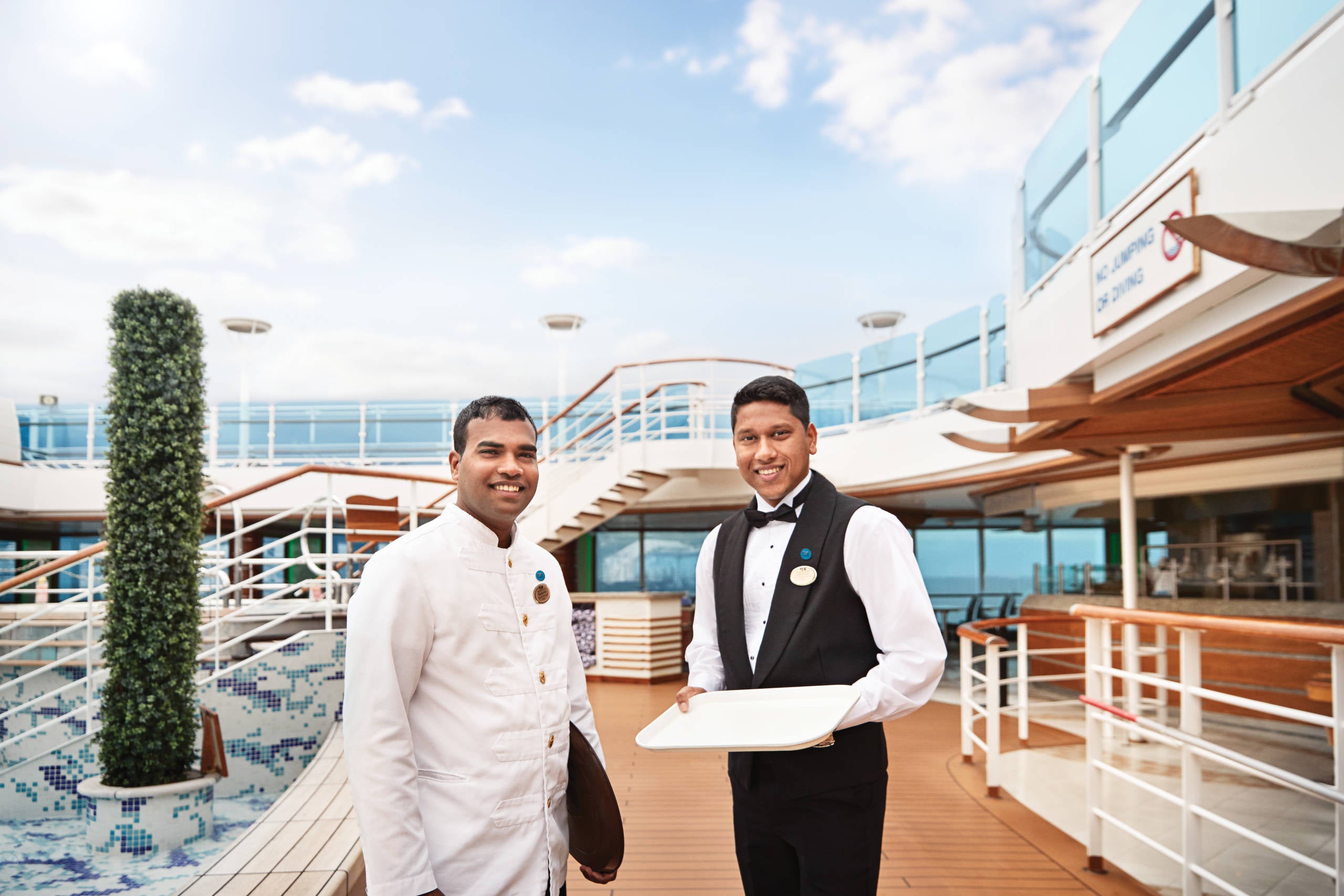
When Joyce, a now-former Norwegian Cruise Line passenger, tried to reserve her latest cruise, she was frustrated when her reservation would not process.
She had been looking forward to booking a cruise with the same crew she had sailed with several times in the previous 24 months. She had become so enamored with the many employees working aboard Norwegian Gem that she had collected their personal email addresses. Joyce told me she sent individual thank-you emails to more than 30 crew members and let them know she intended to see them all again soon.
When she could not confirm her sailing, she assumed it was just a glitch in the booking system. But she was about to find out what can happen if you blur the lines between crew members and passengers.
Joyce called an NCL cruise consultant and was shocked to learn that the line had permanently revoked her cruising privileges. She was no longer welcome aboard any of its ships.
In her request to me for help, she was truly confused and had no idea why her friendliness could possibly have led to a banishment.
“I love Norwegian Cruise Line and all their employees,” Joyce told me. “I praise everyone and send out lots of emails to let the crew members know. I look forward to seeing these people on each cruise — I know them all by name. I’ve been on 12 NCL cruises. I don’t understand why NCL would ban me.”
Joyce is just one of many cruise passengers who have had similar experiences in which they seemed to misinterpret professional cordiality with a desire for something more intimate — like a friendship. It seems her enthusiastic attention to crew members may have made some of them uncomfortable.
NCL, like every other major cruise line, has rules of guest conduct pertaining to passenger-crew interactions:
“Our crew members are friendly, outgoing and helpful, and they will do their very best to make your holiday as enjoyable as possible. Please do not misinterpret their friendliness. Crew members are prohibited from engaging in physical relationships with guests. Crew members are not permitted to socialise with guests beyond their professional duties, and are not permitted to be in guest staterooms, except for the performance of their shipboard duties. Guests are expected to respect these policies and are similarly prohibited from engaging in physical relationships with crew members. Guests are not permitted in any restricted or crew area of the ship, including crew staterooms and corridors.”
I contacted NCL on Joyce’s behalf to find out if there was any way for her to get off the “Do Not Sail” list. Unfortunately, the answer was no. Our executive contact at NCL told me that the team had reviewed all the details of her case and the ban would not be lifted. Joyce is banned from NCL and from all its brands as well.
The lesson
Cruise passengers should always keep in mind that crew members are trained to be kind, attentive and responsive to their needs. It is important not to misinterpret that behavior as anything other than the employee doing their job professionally.
Asking crew members for personal contact information or any other private details of their life might be interpreted as crossing a line that could land you on the blacklist.
Being belligerent or aggressive
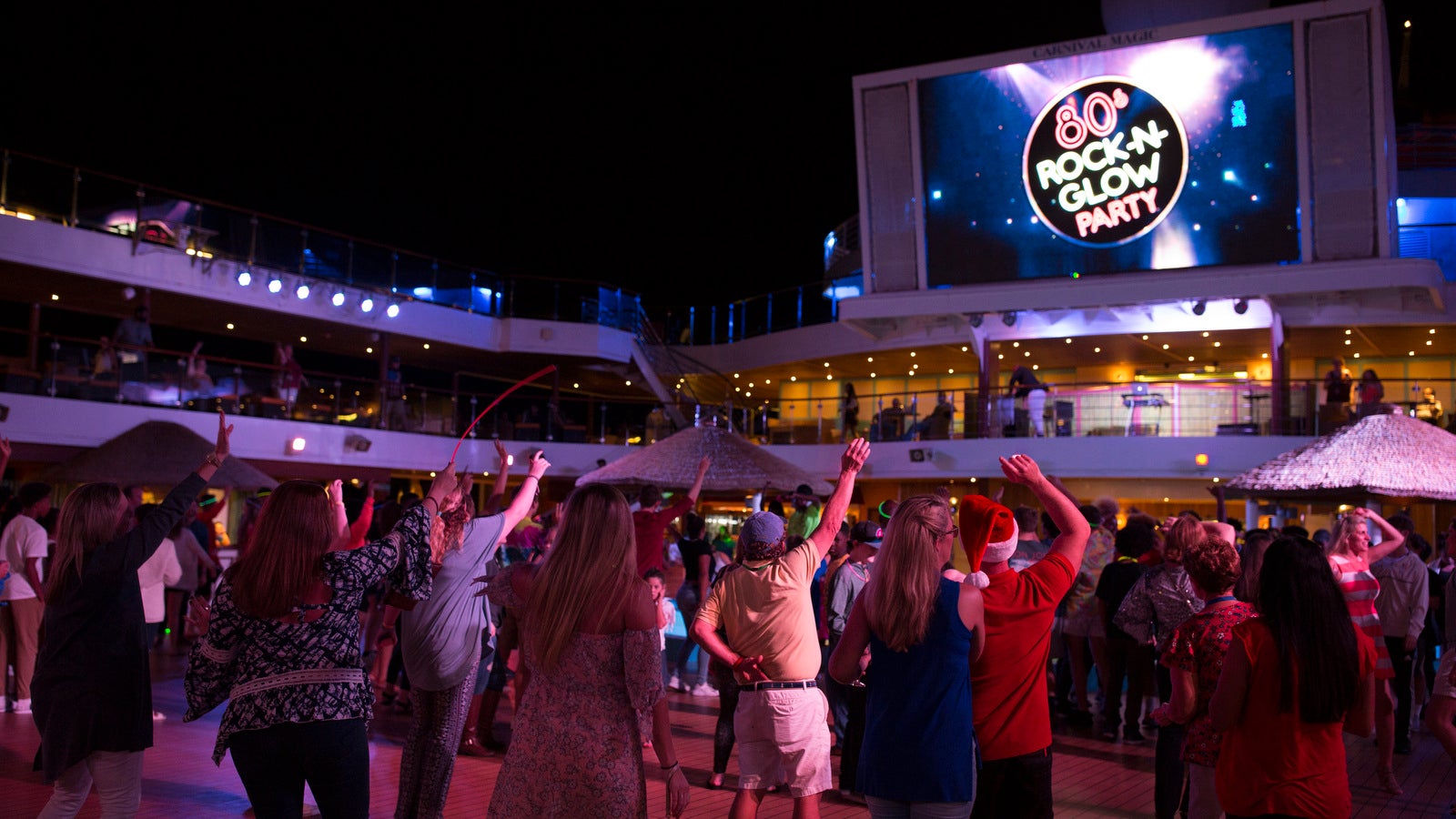
One of the most predictable ways to get banned from a cruise line for life is to be aggressive or belligerent to crew members or other passengers. It also seems like one of the easiest problems to avoid. Unfortunately, some cruise passengers find it impossible.
Mary is the mother of one of those permanently banned passengers. She and her husband have always loved cruising on Carnival ships with their six children. They never had a problem until their last Carnival cruise — and I do mean last Carnival cruise.
The family was on the final night of a Caribbean cruise aboard Mardi Gras when the trouble began. Two of her oldest children, her 18-year-old son and 21-year-old daughter, went out for the evening together.
Although Mary did not witness the chain of events, she says her children were harassed by two drunk men. Her son told her that the men were ogling his sister and he was only standing up for her. The sequence of events is a bit unclear, but her son says that one of the men struck and he fought back.
Mary became aware of the melee when there was a knock on her cabin door. She opened it to find her son flanked by two security guards. The guards informed her that because her son had been involved in an altercation with another passenger, the young man was to stay under cabin arrest until it was time to leave the ship in the morning. In fact, Carnival assigned two security guards to stand outside the cabin all night to make sure Mary’s son didn’t leave.
The following day, before they disembarked Mardi Gras, the 18-year-old received his “banned for life” certificate and was ushered off the ship.
This was particularly problematic because the family already had a future cruise planned with even more members of their clan. Mary wrote letters pleading for reconsideration to John Heald, Carnival’s brand ambassador, and even Christine Duffy, the cruise line’s president. For his part, her son wrote an apology for his behavior but reiterated that he had only been trying to protect his sister. He even gathered letters of recommendation from his high school teachers.
But it was all for nothing.
Carnival, like every other major cruise line, has a zero-tolerance policy for disruptive behavior on its ships — as I’m sure most passengers are happy to hear. Despite this young man’s full mea culpa and pleas to be given another chance so he could attend the family reunion cruise, he remains on the line’s list of banned passengers.
The lesson
Unfortunately, free-flowing alcohol on cruise lines can often lead to bad passenger behavior. If you find yourself in a similar circumstance, seek the nearest security person or go to guest services. Remember, nearly everything is under video surveillance on a cruise ship. If you have been a victim of harassment, report it immediately and let the proper channels handle it.
If you take matters into your own hands, you could face a lifetime consequence.
Filing a credit card dispute postcruise can get you blacklisted

One of the most misunderstood consumer protection tools is a credit card chargeback. Disputing valid credit card charges after a sailing is another common circumstance that might get you blacklisted from a cruise line.
The Fair Credit Billing Act allows credit card-using consumers to dispute charges under two legitimate circumstances:
- Billing errors or billing disputes: The merchant has put through an incorrect charge, or you didn’t receive the goods and services as agreed.
- Fraud: There are credit card charges you didn’t approve, or deception was involved in the transaction.
Yet, time and again, cruise ship passengers use this mechanism to attempt to force a refund for excursions and even portions of their cruise fare to handle dissatisfaction with some aspect of their experience.
Christie C. was one of those passengers. She was unhappy with the lack of connecting doors between her family’s two cabins aboard Norwegian Cruise Line’s Bliss. The cruise line apologized but had no other rooms to assign to her.
At the end of the eight-day Alaska sailing, as she continued to complain, NCL offered her $3,000 ($750 per family member) in future cruise credits as a goodwill gesture. She accepted the offer, but then when she got home, she filed a $3,000 credit card dispute with American Express, citing the value of the vouchers as a “refund” the cruise line owed her for services not rendered. As a result, American Express reversed $3,000 of the cruise fare that the family had paid to sail to Alaska.
Yet vouchers have no cash value and that detail is part of the terms and conditions displayed on the document.
Cruise lines often ignore credit card disputes, and when a company doesn’t respond to a credit card dispute, it is often closed in favor of the consumer. The credit card company permanently reverses the charge in question and this gives the consumer the impression that they’ve “won” and that the purchase is erased.
But what many consumers fail to understand is that the end of a credit card chargeback only definitively ends the bank’s involvement in the dispute. The merchant, in this case NCL, is always free to pursue the unpaid bill in other ways, including involving collections and putting the customer on the blacklist until the debt is repaid.
And that is exactly what happened to Christie.
Soon after their Alaska adventure, her family was keen on booking a new cruise. But Christie found it impossible to book it. After repeated unsuccessful attempts, she called NCL. That’s when a cruise consultant gave her the unusual news that she couldn’t book the trip either.
“Then I called the number the cruise consultant gave me to get additional help,” Christie told me. “That person told me that I was banned from booking any further cruises because of the credit card dispute I filed.”
Not only did NCL ban her from future cruises but the cruise line expected her to pay back the $3,000 she had disputed with American Express. Shocked by the turn of events, Christie immediately called American Express and asked to drop the chargeback.
Norwegian Cruise Line declined to confirm the final outcome with me, but Christie told me that the cruise line eventually lifted the ban after she apologized and the $3,000 was reversed back to NCL.
The lesson
Consumers who file credit card disputes and reverse charges for things they are not entitled to are committing “friendly fraud.” Friendly fraud is when someone may or may not understand that what they are doing is wrong, but it definitely is wrong.
If you have a complaint about a charge, it is imperative to go through the proper channels to correct the issue on board the ship with guest relations. If the cruise line responds to the complaint with a future cruise credit, you should never take it upon yourself to attempt to convert the credit into a cash refund through a credit card dispute. That is a recipe for how to land on the cruise line’s blacklist.
If you don’t agree with the outcome, the next step is to escalate your complaint to the cruise line’s customer-facing resolution department. If you need help finding a person at the cruise line to receive your complaint, my advocacy organization, Consumer Rescue, can help. We maintain a free database of customer support contacts for all of your favorite companies. Just tell us the name of the company you’re struggling with and we will tell you the name and contact of someone we know who has a history of helping customers there.
Remember: If you don’t solve your problem the right way, you will only be making the situation worse — and in the case of a cruise complaint, the only berth you might secure in the future is a place on the “Do Not Sail” list.
Bottom line
Some of the ways to end up on a cruise line’s “Do Not Sail” list are fairly obvious, but some are not. To make sure that you do not run afoul of your cruise line’s rules and regulations, make sure to read through your cruise contract. All of it. That lengthy document will inform you of what you can and cannot do (and bring) on board the ship.
These cruisers are just a handful of the many who have contacted me for help over the years, hoping to get unbanned from the cruise lines they love. Unfortunately for most of them, it is usually too late, and they are forced to find new favorites. But it’s not too late for you to learn from their mistakes.
Happy cruising!
If you have a problem with a cruise line, airline, hotel, vacation rental agency, car rental location or credit card company, TPG can help. Send your problem to ombudsman@thepointsguy.com and I’ll help you, too, if I can.






























































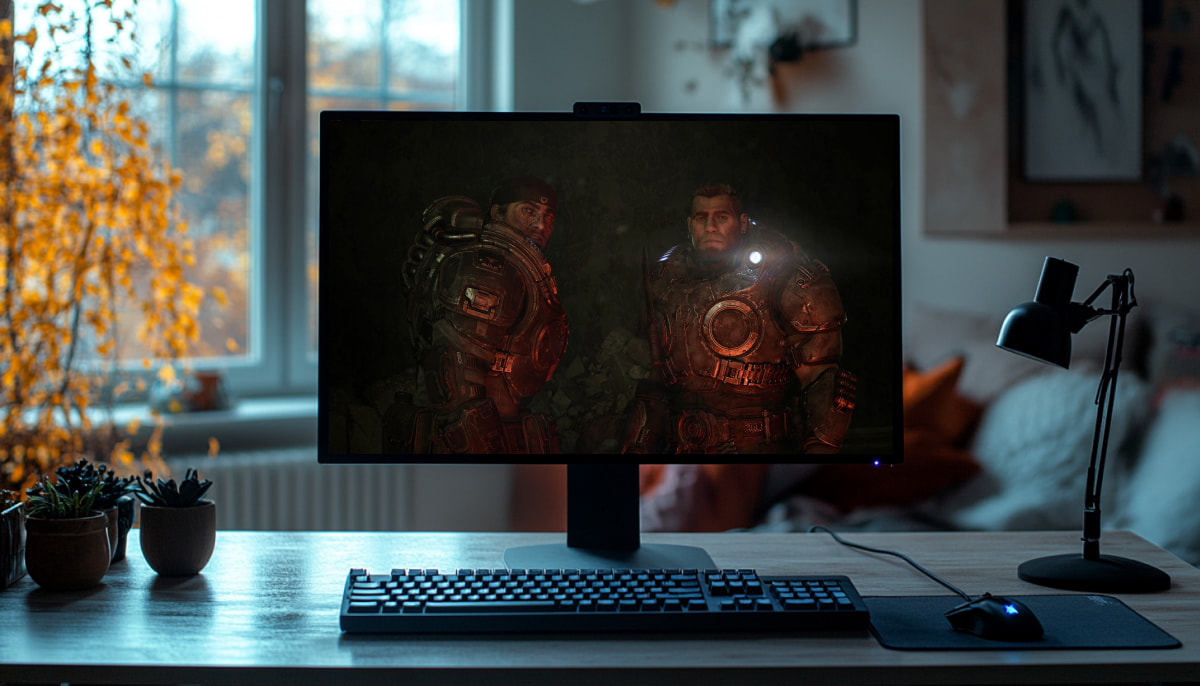



-Baldur’s-Gate-3-The-Final-Patch---An-Animated-Short-00-03-43.png?width=1920&height=1920&fit=bounds&quality=70&format=jpg&auto=webp#)
























